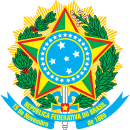This article has multiple issues. Please help improve it or discuss these issues on the talk page. (Learn how and when to remove these messages)
|
| Part of a series on the |
| Culture of Brazil |
|---|
 |
| Society |
| Topics |
| Symbols |
The music of Brazil encompasses various regional musical styles influenced by European, American, African and Amerindian forms. Brazilian music developed some unique and original styles such as forró, repente, coco de roda, axé, sertanejo, samba, bossa nova, MPB, gaucho music, pagode, tropicália, choro, maracatu, embolada (coco de repente), frevo, brega, modinha and Brazilian versions of foreign musical styles, such as rock, pop music, soul, hip-hop, disco music, country music, ambient, industrial and psychedelic music, rap, classical music, fado, and gospel.
Samba has become the most known form of Brazilian music worldwide, especially because of the country's carnival, although bossa nova, which had Antônio Carlos Jobim as one of its most acclaimed composers and performers, has received much attention abroad since the 1950s, when the song "Desafinado", interpreted by João Gilberto, was first released.
The first four winners of the Shell Brazilian Music prize[1] have each left a legacy on Brazilian music and are among the representatives of Brazilian popular music: Pixinguinha (choro), Antônio Carlos Jobim (bossa nova), Dorival Caymmi (samba and samba-canção), and Luiz Gonzaga (forró).
Instrumental music is also largely practiced in Brazil, with styles ranging from classical to popular and jazz influenced forms. Among the later, Naná Vasconcelos, Pixinguinha, Hermeto Pascoal and Egberto Gismonti are significant figures. Notable classical composers include Heitor Villa-Lobos, Carlos Gomes and Cláudio Santoro. The country also has a growing community of modern/experimental composition, including electroacoustic music.
- ^ "Prêmio Shell de Música – Shell Brasil". Archived from the original on 24 February 2014. Retrieved 13 February 2014.